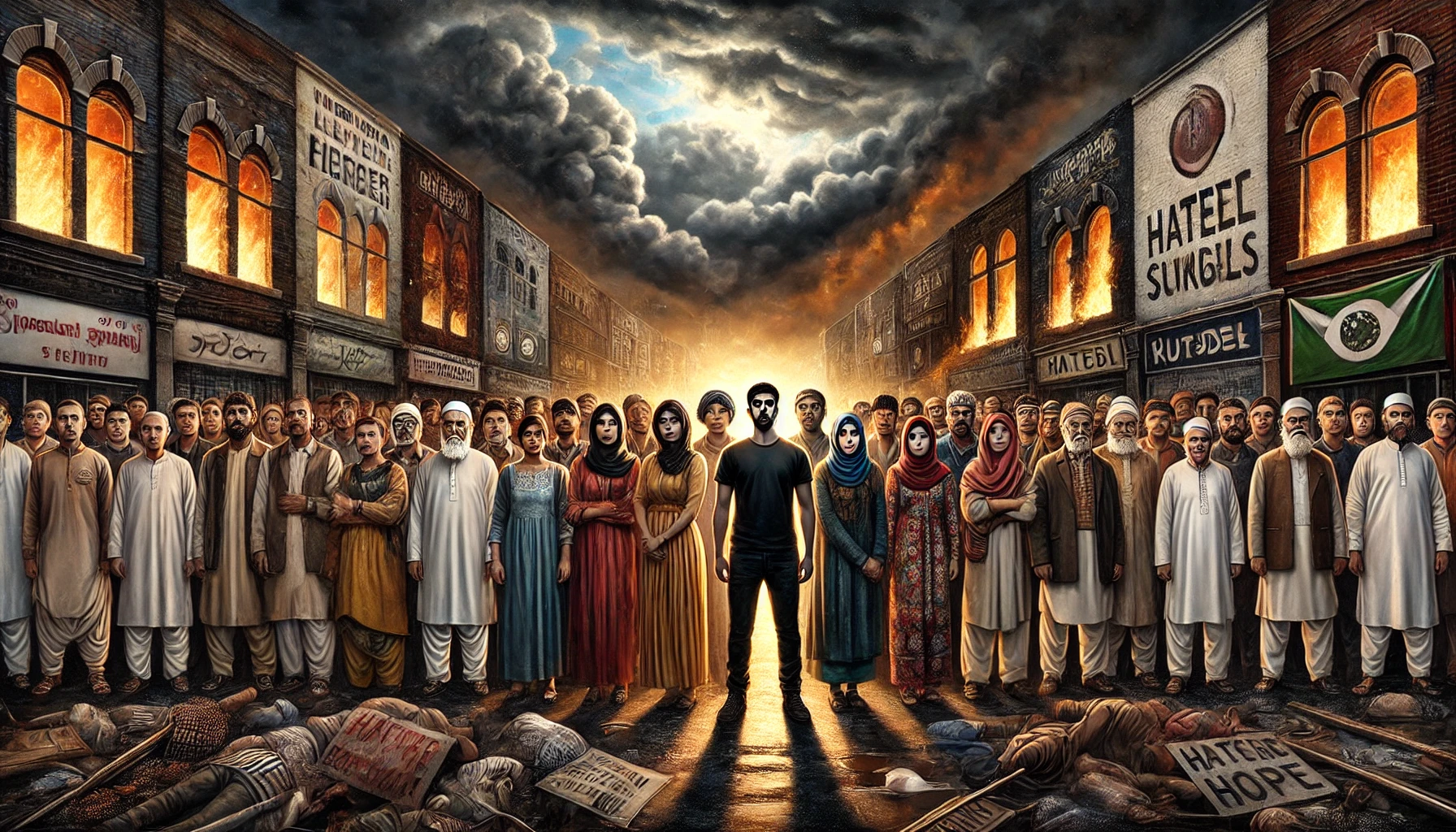India: Rising Religious and Caste Tensions
India, with its secular constitution, promises equal rights to all citizens regardless of religion, caste, or creed. However, the reality for many minorities—Muslims, Christians, Dalits, and Adivasis—is often far removed from constitutional ideals.
Muslim Marginalization
India’s Muslim community, accounting for nearly 15% of its population, continues to face systemic discrimination and violence. According to Human Rights Watch’s 2024 report, anti-Muslim sentiment has been rising, fueled by polarizing rhetoric from political and religious leaders. (Human Rights Watch)
Recent incidents include mob lynchings over cow slaughter allegations and property demolitions targeting Muslim neighborhoods. For example, in June 2024, bulldozers were used to raze Muslim homes in Uttar Pradesh, sparking allegations of collective punishment. (Al Jazeera)
Christian Communities Under Attack
Christians, who make up about 2.3% of India’s population, are increasingly being accused of forced religious conversions. In October 2024, several churches in Chhattisgarh were attacked by right-wing groups, leading to a renewed debate over anti-conversion laws. (BBC)
Dalits and Adivasis
The Dalit community, formerly known as “Untouchables,” continues to face entrenched caste discrimination. A December 2023 study by the National Dalit Movement for Justice found that crimes against Dalits had risen by 15% over the past year. Adivasis, or indigenous tribes, face displacement due to large-scale mining projects, with over 10,000 families evicted in Jharkhand alone during 2024. (The Hindu)
Pakistan: A Dire Situation for Religious Minorities
Pakistan was founded on the principle of protecting the rights of Muslims but has failed to safeguard its minority populations, including Hindus, Christians, Sikhs, and Ahmadis. Non-Muslims make up less than 4% of the population, yet they are disproportionately affected by violence, forced conversions, and systemic discrimination.
Blasphemy Laws and Mob Justice
Pakistan’s controversial blasphemy laws have often been used to target religious minorities. In August 2024, a Christian man in Punjab was lynched after being falsely accused of blasphemy. Amnesty International criticized the Pakistani government for failing to protect its citizens and for perpetuating an environment of fear. (Amnesty International)
Forced Conversions
Forced conversions remain a critical issue, particularly for Hindu and Christian girls. A 2024 report by the Human Rights Commission of Pakistan estimated that over 1,200 girls were forcibly converted to Islam in the past year. The Sindh government’s repeated failure to pass a law against forced conversions highlights the lack of political will to address this issue. (The Guardian)
Attacks on Ahmadis
The Ahmadiyya Muslim community, officially declared non-Muslim in Pakistan, faces routine persecution. In June 2024, an Ahmadi mosque in Faisalabad was vandalized, marking the 15th such attack that year. (Dawn)
Bangladesh: Violence Against Hindus and Buddhists
Bangladesh, which gained independence in 1971, has struggled to protect its minorities, particularly Hindus, Buddhists, and indigenous communities. Hindus, who once constituted nearly 30% of the population, now make up only 8% due to decades of migration and persecution.
Targeted Attacks on Hindus
In October 2024, communal riots broke out in Dhaka during Durga Puja celebrations, leading to the destruction of over 50 Hindu temples. The government faced criticism for its delayed response, with the United Nations urging Bangladesh to take stronger measures to protect religious freedom. (UN News)
Rohingya Refugee Crisis
While not a native minority, the Rohingya Muslim population in Bangladesh remains highly vulnerable. Over a million Rohingya refugees live in overcrowded camps in Cox’s Bazar, where they face restricted movement and limited access to education and healthcare. A November 2024 UN report highlighted worsening conditions in these camps. (UNHCR)
Sri Lanka: Lingering Ethnic and Religious Divisions
Sri Lanka, recovering from a 26-year civil war, continues to grapple with ethnic and religious tensions. The Tamil minority and Muslim communities often bear the brunt of discrimination and violence.
Tamil Reconciliation Challenges
Despite promises of reconciliation, Tamil-majority areas remain heavily militarized. A February 2024 report by Human Rights Watch revealed that Tamil families displaced during the civil war are still waiting for the return of their lands. (HRW)
Attacks on Muslims
Sri Lanka’s Muslim community has faced repeated attacks, particularly after the 2019 Easter bombings. In May 2024, anti-Muslim riots erupted in Kandy, resulting in the death of five people and the destruction of dozens of homes. (Reuters)
Nepal, Bhutan, and Maldives: Smaller Nations, Similar Challenges
Although smaller in population, Nepal, Bhutan, and Maldives have their own struggles with minority rights.
Nepal
Dalits in Nepal face systemic exclusion, particularly in rural areas. In April 2024, protests erupted after a Dalit woman was denied access to a public water source in western Nepal. (The Kathmandu Post)
Bhutan
Bhutan’s Lhotshampa community, ethnically Nepali, continues to face statelessness. A 2024 report by the International Refugee Council noted that over 100,000 Bhutanese refugees remain in camps in Nepal. (IRC)
Maldives
The Maldives has faced criticism for its treatment of non-Muslims. In January 2024, Amnesty International highlighted cases where expatriates practicing other religions were deported for violating strict Islamic laws. (Amnesty International)
The Path Forward
Addressing minority persecution in the Indian subcontinent requires coordinated efforts:
- Strengthening Legal Protections: Governments must enforce constitutional safeguards and introduce stronger anti-discrimination laws.
- Promoting Interfaith Dialogue: Community-led initiatives can bridge religious and ethnic divides.
- Economic Empowerment: Education and employment opportunities for marginalized groups can reduce vulnerabilities.
- Global Accountability: International organizations must hold governments accountable for human rights violations.
The persecution of minorities in the Indian subcontinent reflects broader societal and governance challenges. As recent events demonstrate, the region must confront its past and present injustices to build a more equitable future. Failure to act risks not only the lives and livelihoods of vulnerable communities but also the stability and reputation of the region on the global stage.











